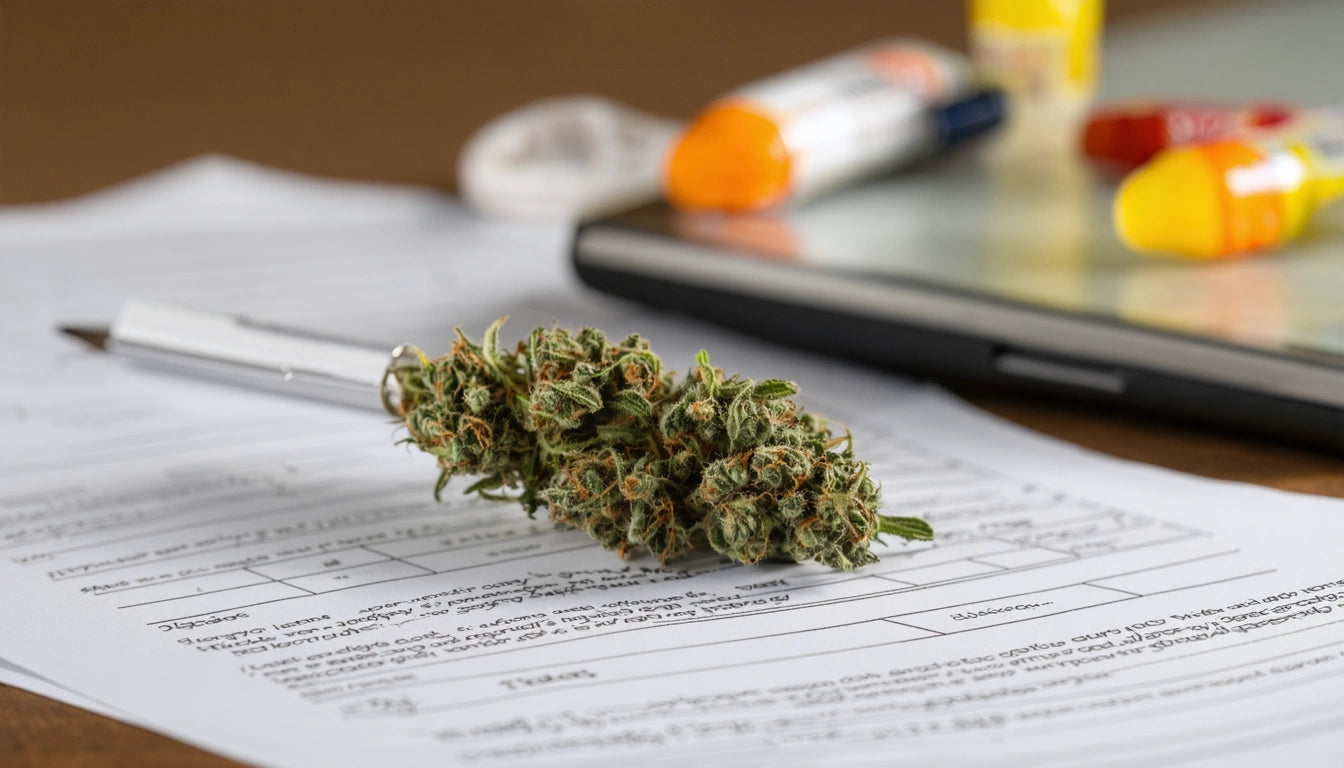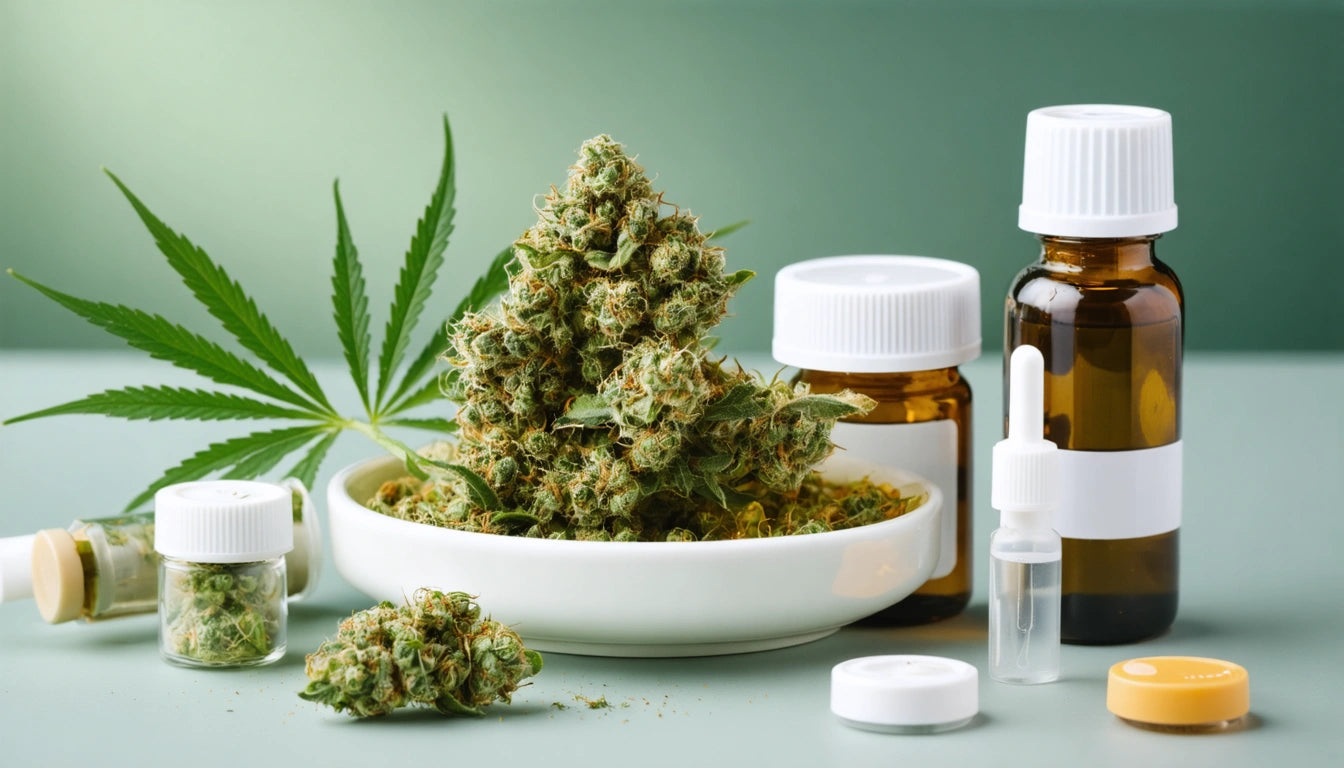Can Marijuana Use Trigger Seizures?
The relationship between marijuana use and seizures is complex and sometimes contradictory. While cannabis, particularly CBD, has shown promise in treating certain seizure disorders, there are also reports suggesting that marijuana consumption might trigger seizures in some individuals. This article examines the evidence surrounding whether weed can cause seizures and the factors that may contribute to this risk.
Understanding Marijuana and Seizure Activity
Seizures occur when there's abnormal electrical activity in the brain. The question of whether cannabis can provoke seizures requires understanding how its compounds interact with our neurological system. Cannabis contains over 100 cannabinoids, with THC (tetrahydrocannabinol) and CBD (cannabidiol) being the most studied.
Interestingly, while CBD has anticonvulsant properties and is FDA-approved for certain forms of epilepsy, THC's effects on seizure thresholds are more variable. Some research suggests that high concentrations of THC might lower the seizure threshold in susceptible individuals, potentially increasing the risk of experiencing a seizure.
Potential Mechanisms Linking Cannabis and Seizures
Several mechanisms might explain how marijuana could potentially trigger seizures in some users:
- THC's effect on neurotransmitter systems, particularly glutamate and GABA, which regulate neuronal excitability
- Alterations in brain blood flow and metabolism
- Individual genetic variations in cannabinoid receptors
- Interactions with other medications
- Contaminants in unregulated cannabis products
Research has shown that cannabis can affect consciousness levels, which might be related to its potential to influence seizure activity in certain individuals.
Risk Factors That Increase Seizure Vulnerability
Pre-existing Conditions
Individuals with certain conditions may face higher risks when using cannabis:
- History of epilepsy or seizure disorders
- Previous traumatic brain injury
- Genetic predisposition to seizures
- Substance withdrawal states
- Sleep deprivation combined with cannabis use
For those wondering can you get a seizure from weed if you have no history of seizures, the risk appears to be lower but not entirely absent. Case reports exist of first-time seizures occurring in otherwise healthy individuals after cannabis use, though these remain relatively rare.
Consumption Methods and Dosage
The method of consumption and dosage may influence seizure risk. High-potency concentrates with elevated THC levels might pose a greater risk than lower-potency products. When storing these products, using proper storage solutions like resealable mylar bags can help maintain product integrity and prevent degradation that might alter cannabinoid ratios.
Additionally, synthetic cannabinoids (often called "spice" or "K2") have been more strongly associated with seizures than natural cannabis products.
Research on THC, CBD, and Seizure Thresholds
The scientific literature presents a nuanced picture regarding whether THC can cause a seizure:
- Some animal studies suggest THC may have both pro-convulsant and anti-convulsant effects depending on dosage and individual factors
- CBD consistently shows anti-seizure properties and is now used in FDA-approved medications for certain forms of epilepsy
- The ratio of THC to CBD in a product may influence seizure risk
As noted in research on cannabis for epilepsy management, CBD-dominant formulations have shown significant promise in reducing seizure frequency in treatment-resistant epilepsy syndromes.
Paradoxical Effects
Cannabis can produce paradoxical effects in different individuals. While some people experience seizure reduction with cannabis use, others might face increased risk. This variability likely stems from differences in:
- Genetic factors affecting cannabinoid metabolism
- Specific cannabinoid ratios in products used
- Underlying neurological conditions
- Concurrent medication use
This paradox explains why cannabis can be both therapeutic for certain seizure disorders while potentially triggering seizures in other contexts.
Recognizing Warning Signs and Safety Precautions
For cannabis users concerned about seizure risk, being aware of warning signs is important. Symptoms that may precede a seizure include:
- Unusual sensations or "auras"
- Sudden confusion or altered consciousness
- Involuntary muscle twitching or shaking after using cannabis
- Visual disturbances or hallucinations
- Unexplained anxiety or panic
Safety precautions for those with known seizure risk factors include:
- Consulting healthcare providers before using cannabis
- Starting with low-THC, high-CBD products if using medicinally
- Avoiding high-potency concentrates
- Maintaining consistent dosing schedules
- Keeping a journal of consumption and any unusual effects
Understanding how cannabis affects individual perception can also help users recognize concerning changes that might warrant medical attention.
While the evidence doesn't suggest that most cannabis users will experience seizures, certain individuals may have higher risk based on their medical history and genetic factors. As with many aspects of cannabis use, individual responses vary significantly, and what triggers a seizure in one person may have no effect on another.











Leave a comment
All comments are moderated before being published.
This site is protected by hCaptcha and the hCaptcha Privacy Policy and Terms of Service apply.